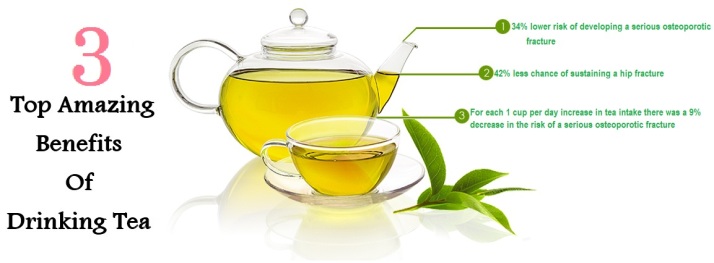 There are nearly 9 million new fractures due to osteoporisis worldwide, with an estimated annual cost to our society of approximately $100 billion USD.
There are nearly 9 million new fractures due to osteoporisis worldwide, with an estimated annual cost to our society of approximately $100 billion USD.
Black teas has been advised in many Complementary and Alternative Medicine (CAM) therapies as food and nutrition advice for prevention of many diseases For example, in Ayurveda Chai tea has been traditionally advocated as lifestyle advice to improve digestion and from the Ayurvedic perspective improper digestion is the root cause of many disease..
Now researchers have reported that drinking black tea reduces the risk of fractures in older women.
Myers et al carried out a prospective, observational complementary medicine research study of 1,188 women with an average age of 75. The study revealed that having at least 3 cups of tea a day resulted in:
• 34% lower risk of developing a serious osteoporotic fracture
• 42% less chance of sustaining a hip fracture
• For each 1 cup per day increase in tea intake there was a 9% decrease in the risk of a serious osteoporotic fracture
So how does black tea protect against bone loss?
The most probable mode of action is that the Flavonoids found in black tea inhibit bone resorption and simultaneously stimulate osteoblastic bone formation.
So when you are next at the coffee shop on the way to work in the morning order a cup of black tea instead of coffee for more health benefits.

